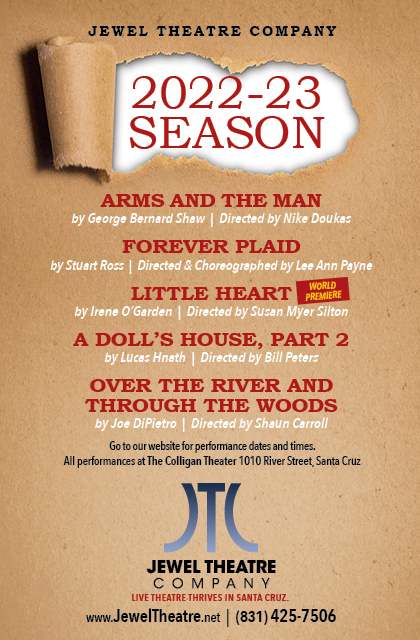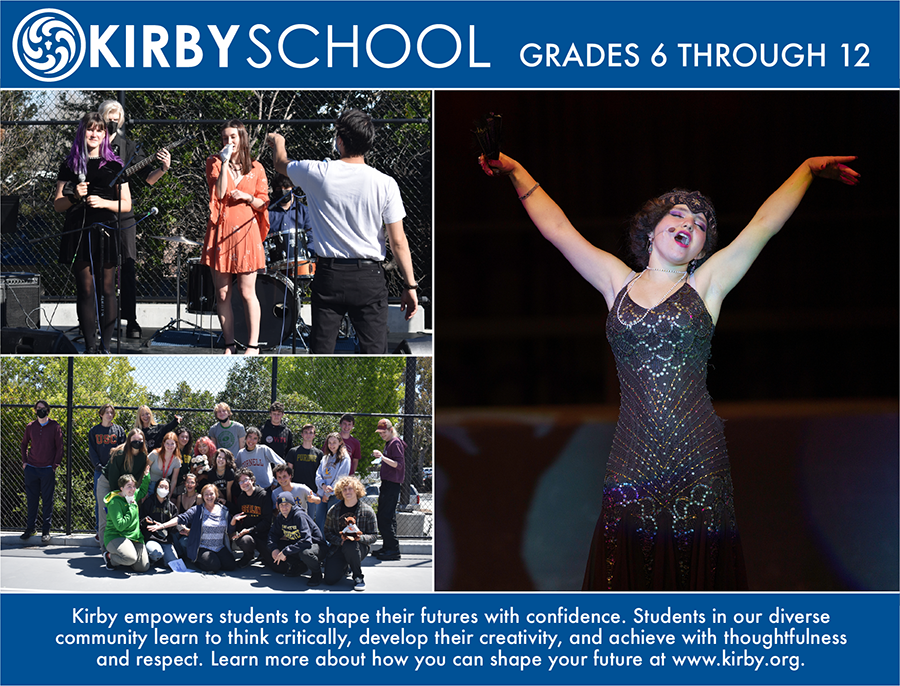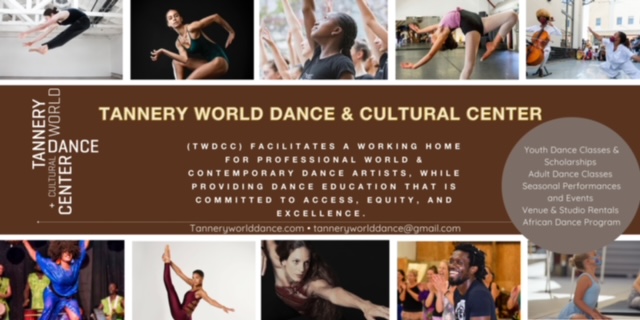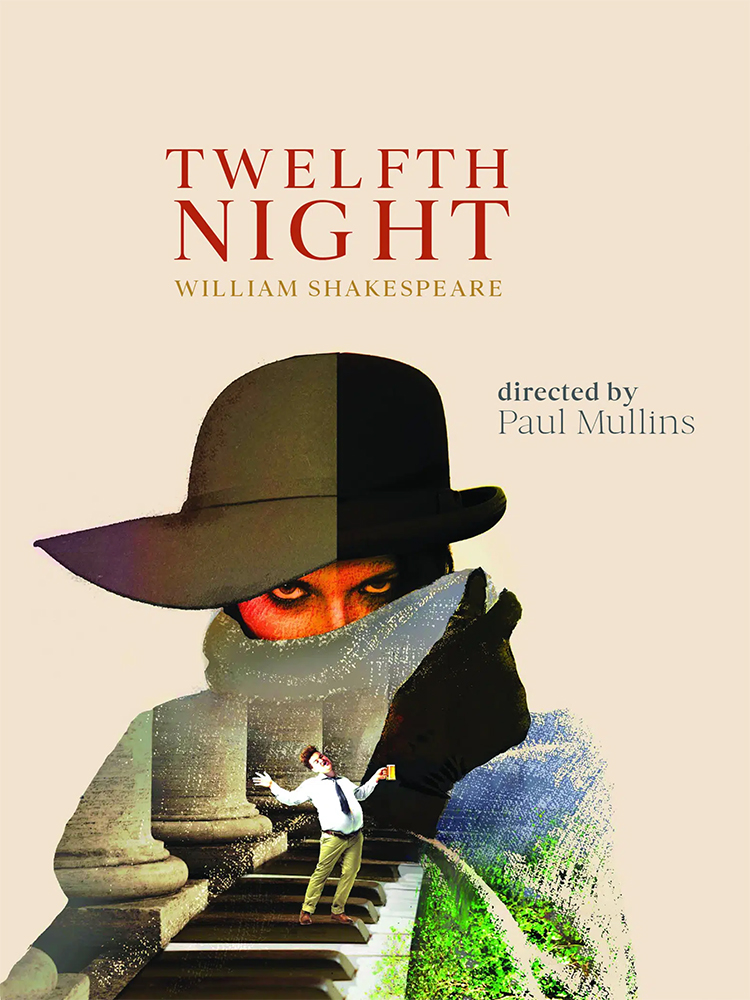
By William Shakespeare
Twelfth Night, by William Shakespeare, directed by Paul Mullins.
Twelfth Night introduces us to Viola who is shipwrecked physically, and then introduces her to a cast of characters who are shipwrecked emotionally. Stuck in old ideas of love and grief that have grown so stale as to become something else entirely, the world of Illyria is shocked from Winter into Springtime by the passions of young Viola who disguises herself as a man in order to survive. Called by the late Harold Bloom “the greatest of all Shakespeare’s pure comedies,” this production will be directed by Paul Mullins, one of SCS’s associate artists and the director of The Agitators, Pride and Prejudice, Love’s Labours Lost, The 39 Steps, and Hamlet.
Benefactors
Alan Daniel and Kathy Kenan
Audrey E. Stanley
Executive Producers
The Hyatt Family
Quiet Donors Fund
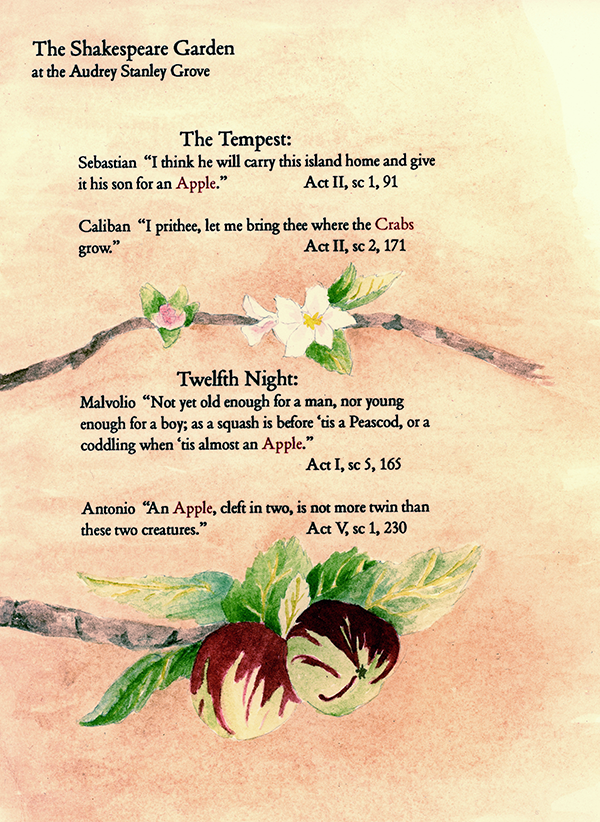
Orsino, the Duke of Illyria, persists in wooing the Countess Olivia, even though she has vowed a lengthy period of mourning for her dead brother. Viola has been shipwrecked on the coast of Illyria; she believes that her twin brother Sebastian has drowned at sea.
Orsino
M.L. Roberts*
Valentine
Gustavo A. Flores
Viola
Safiya Harris*
Captain
Jonathan Smoots*
Sir Toby Belch
Mike Ryan*
Maria
Patty Gallagher*
Sir Andrew Aguecheek
Charles Pasternak*
Feste
Cedric Lamar*
Olivia
Jennie Greenberry*
Olivia’s Attendants
Cassie Martin, Maya Mays
Malvolio
Paige Lindsey White*
Antonio
Kyle T. Hester*
Sebastian
Joshua Lewis
Fabian
Christopher Silvestri*
Priest
Jonathan Smoots*
* Denotes member of Actors’ Equity Association, the Union of Professional Actors and Stage Managers in the U.S.
Director
Paul Mullins++
Scenic Designer
Dipu Gupta
Costume Designer
B. Modern+
Lighting Designer
Kent Dorsey+
Sound Designer / Composer
Rody Ortega+
Wigs Designer
Jessica Carter
Production Stage Manager
Daniel J. Hanson*
Head of Dramaturgy
Michael Warren
Associate Head of Dramaturgy
Sean Keilen
Dramaturg
Amani Liggett
Voice Coach
David Morden
Intimacy Choreographer
Noah Luce
Assistant Stage Manager
Tess Postiglione
Assistant Costume Designer
Gillian Bong
Stage Management Intern
Sydney Enthoven
Directing Intern
Molly Sharfstein
Dramaturgy Intern
Anna Ladokhin
Harmonica music for TWELFTH NIGHT was generously performed and provided by John Peyton.
++ The Director is a member of the Stage Directors’ and Choreographers’ Society, a national theatrical labor union
+ These designers are represented by United Scenic Artists, Local 829 of the International Alliance of Theatrical
Stage Employees
* Denotes member of Actors’ Equity Association, the Union of Professional Actors and Stage Managers in the U.S.
William Shakespeare was in his mid-thirties and at the height of his powers when he wrote this masterpiece about the transforming wonder of love. The official title of the play is Twelfth Night or What You Will. It is the only one of Shakespeare’s plays to have an alternate title. Why? No one knows. Perhaps it is fitting that the play that considers the giddy madness of romantic yearning and the follies and forces aligned against it should have two titles for us to consider.
Twelfth Night is the name of a religious holiday that marks the Feast of Epiphany and ends the Christmas season and the celebration in Elizabethan times was raucous. There was drinking and revelry, mischief making and crossdressing and disguise. Servants and their masters would often switch roles for a short time, a young boy would be selected as the King of Misrule and reign over the festivities for the night. Although there is no mention of Twelfth Night in Shakespeare’s play (and critical dispute as to whether or not it was first performed on that holiday) there is no doubt that its spirit of misrule, revelry and social disorder is alive and well among the love-struck Illyrians. And, as with any great celebration there is also the promise that it will end and “real life” will return. There is a sense of melancholy and loss even in the best times, for as Feste reminds us in the play,“The rain it raineth every day.”
And what of What You Will? What was Shakespeare’s aim? No one is sure. It may simply be a nod to the mad, topsy-turvy spirit of the night before Epiphany - when you can do what you like, what you want, what you desire, all bets are off. It may also be an afterthought. One theory is that Shakespeare was asked to give his play a title and he said, “Call it Twelfth Night … or what you will.” - as in “I don’t know, whatever.” Or maybe, he just wanted to sign the work with his own name. In the end, the second part of the title may simply be a charge to us, the audience, to make of this play what we will; to like, as Rosalind says in As You Like It, “as much of this play as please you”. Shakespeare asks us to decide what it means and what matters, or if it matters at all. He asks us to sit back and hear a story about Illyria, a place where there is always time for leisurely courtship, for songs, for drinking and dancing, and for a practical joke or two; and maybe, just maybe, for true love. Then, make of it what we will.
Amani Liggett
“At our feast wee had a play called ‘Twelve night, or what you will’; much like the commedy of errores […] A good practise in it to make the steward beleeve his Lady widowe was in Love with him, by counterfayting a letter, as from his Lady […] telling him what shee liked best in him […] and then when he came to practise, making him beleeve they tooke him to be mad.”
This review of Twelfth Night comes from the diary of John Manningham where he describes the earliest recorded performance of the play by the Lord Chamberlain’s Men at one of the Inns of Court in London on February 2, 1602. The last of Shakespeare’s romantic comedies, Twelfth Night was probably written in 1600 or 1601, between the composition of Hamlet and Troilus and Cressida. Although it was not printed until the First Folio in 1623, the play was probably popular; it was performed at court for King James I in 1618 and again in 1623.
Manningham notes the play’s similarity to The Comedy of Errors (1594) due to its employment of a plot in which separated twins are reunited. However, Twelfth Night is much different from Errors with its repeated incidents of mistaken identity. When Viola cross-dresses as “Cesario” (in imitation of her presumed drowned twin brother Sebastian) she creates gender confusion. Olivia falls suddenly and passionately for Cesario; while Viola as Cesario is frustrated in her silent devotion to Orsino, he finds in Cesario not just an apt messenger in his ardent pursuit of Olivia but an attractive and sensitive confidant also. This comic triangle presents a profound study in the nature of desire and attraction and also in the roles of passion and loyalty in conceptions of love, all expressed in some of Shakespeare’s greatest lyric poetry.
As Manningham indicates, a second plot involves the conflict between the vain and austere Malvolio, who as Olivia’s steward is dedicated to maintaining her household in mourning, and her kinsman Sir Toby Belch and his friends, who resent Malvolio's restraints upon their festive behavior. When their trick exposes and provokes the steward's amorous fantasies concerning Olivia, the resulting action is initially comic but ultimately develops into a painful humiliation.
The holiday Twelfth Night was the last night of Christmas festivities, a period when misrule was indulged; the next day the party was over. During the play many of the characters find themselves in positions of extremity, or over-indulgence, even sensing madness. At the end marriages will be celebrated and social norms restored. All have been brought to confront reality; as Feste sings at the close, “For the rain it raineth every day.”

